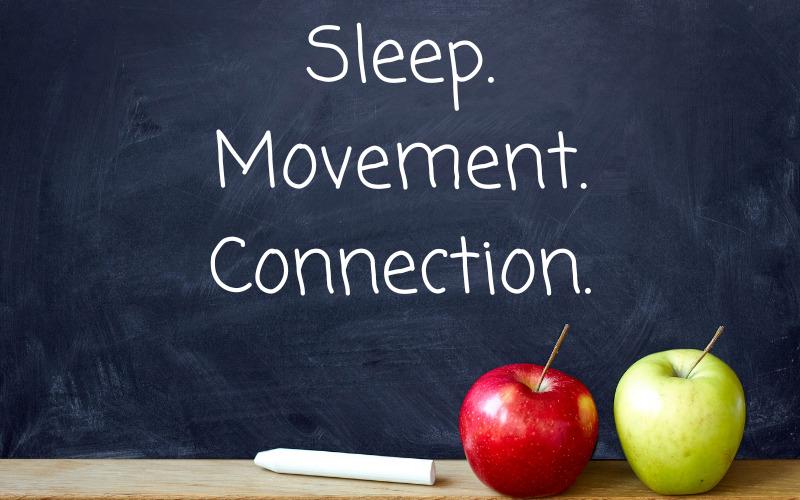Our kids are growing up in a culture that lacks empathy. It’s not that people don’t care, I think most do. But caring is passive. It’s a starting point, but not an end. Empathy is different. Empathy takes effort and desire, and it often compels action. A lot of the rage and hopelessness that many of us feel at times, Gen. Z feels in spades. So many of them don’t feel seen or heard.
While their friends may be their priority, you’re still the most important person in your teen’s life. Don’t be fooled, they care what you think. But they care less about whether you agree and more about whether you understand. I know how hard this can be. If you have a kiddo that’s struggling or expressing views that you find distasteful or just flat out wrong, empathy and curiosity can feel impossible or perhaps enabling.
No one has issues because they got too much listening and empathy as a child.
Being right isn’t important in this context, the relationship with your child is. The pathway to a better relationship lies in empathy.
Below are some important points about empathy, followed by five tips to help you apply this in your family. Finally, I linked to a short but powerful video that will remind you of two things you already know:
- That we all have a tendency to label and dismiss others.
- When we take the time to see the humanity in others, we feel more connection and joy overall.
- Empathy starts with curiosity. Ask questions and let go of your assumptions about what you think you know.
Parental assumption: “You’re in your room all day because you’re addicted to your screen.”
Teen reality: “I’m in my room all day because I’m struggling with social anxiety and avoiding the tension in our family.”
- Empathy requires feeling emotions, particularly sadness. Sadness is glue that binds connection. Teens that come across like psychopaths are often extremely emotional and empathetic (just watch how they are with a friend or a pet). They’re typically overloaded and shut down from too much emotion stored up over time.
- Empathy cannot happen when we’re activated. If you’re consumed by anxiety, anger, or fear, you won’t be able to offer empathy because your body is in survival mode. Tuning into another person’s experience requires a felt sense of safety in our own body.
- Empathy requires vulnerability. Vulnerability isn’t just about emotions. It’s about the courage to be changed by another person’s experience. To admit wrongdoing or an error of thinking takes courage.
- Empathy takes practice. It’s a muscle that gets stronger with more use.
- Empathy involves boundaries. Staying up all night worrying about your child is not empathy, it’s anxiety. Emotional boundaries means I can resonate with your experience while still holding on to my own thoughts, feelings, and actions. We are not the same.
- Empathy is not endorsement. We can empathize with someone’s experience and still not approve of their behavior.
5 Tips To Help You Apply This To Your Family
- Practice responding to your child or spouse with a question instead of a statement.
Examples might be: Tell me more? How long have you felt that way? What do you like about that? What do you think I don’t get or understand? What would feel more helpful?
- Carve out distraction free time to have conversations.
This may include family meetings, check ins at night before bed, in the car, or during dinner. Family therapy is great for this.
- Keep it short and casual.
Your child’s attention may last anywhere from 30 seconds to 10 minutes. Sometimes you’ll get lucky and things go longer. Their body language will tell you when they’re done.
It doesn’t have to be deep. Ask them questions about their online friends, favorite social media influencers, opinions about current events or pop culture, or whatever they’re interested in. Remember, it’s not about you.
- Check your reactivity.
Empathy is only possible from a calm and regulated state. You might just be too pissed off. Give yourself a pause. You don’t have to make a decision in the moment.
Do-overs are ok. Come back and say something like, “let’s try this again. I want to understand where you’re coming from.”
- Accept your differences.
You will often not see eye to eye with your child. Especially as they get older, they will say and do things at times precisely because it’s different. It’s not refuting your values nor have you failed. They need to be able to figure out who they are by trying on different personas and views. Resisting or patronizing them for this reality will only drive them deeper and further away.
Empathy is the cornerstone of a healthy world, country, city, or family. Let’s agree that we all have room for improvement. Sometimes we go through the motions and pretend. Empathy takes effort. So many of us are just too stressed, overwhelmed, or traumatized to provide the level of curiosity and emotional vulnerability that true empathy requires. Acknowledging this reality is an important place to start.
Our kids need us to lead the way by showing up with more regulation and less reactivity. They need us to really listen and ask more questions while giving fewer answers.
Your child doesn’t need you to agree, they just need to feel like you’re listening and making an effort to get what their experience is in a heartfelt way.
As you watch this video, tune in to your body and emotions. Are you tearing up? Are you shutting down? Feeling annoyed? Perhaps it brings up trauma or grief of your own. What do you notice about how you process or experience emotions? How does your child process emotions?
No judgement here at all. Whether you’re highly empathetic or a human robot, self-compassion is key. It’s always harder within our own families to show up this way, precisely because we do care so much.
One step at a time. One day at a time. Keep showing up.







